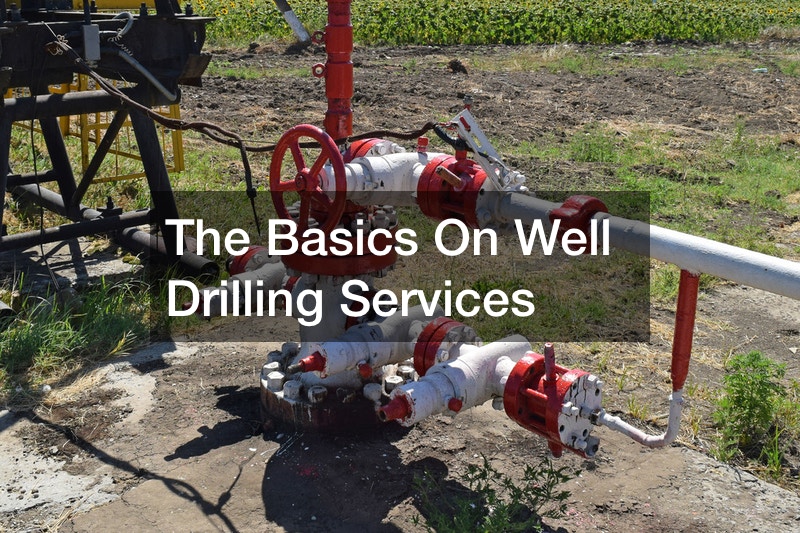
If you are struggling to find a job or your chosen career path is experiencing a slowdown, you could learn a new trade and turn things around for yourself. Many people across their lifetime will learn a new trade either to complement the career they have or to completely switch gears to another career path.
Whether you want to generate more income, are just getting started in the job market, or simply sick and tired of what you are currently doing for a living, taking a break to learn a new trade can be one of the best moves you make. Figuring out which trade will be best for you starts with a little self-evaluation.
Who Do You Want to Be?
You would not be the first person that left their smothering office job to join the lucrative construction contractors positions that are available. A lot of people make the transition from an office type job to working with their hands.
Construction contractors, and other contractors, often are able to make their own hours, open their own businesses, and be their own bosses. Of course, if you are considering learning a new trade, you need to self evaluate to determine which type of construction contractor you would like to be. Each field of construction requires a different type of training.
For example, a plumbing contractor needs training in plumbing, drainage, types of piping systems, and the codes that regulate the same. There is a wide range of contractors that perform very specific construction services. A general contractor does a little bit of everything, and oversees the entire project.
If you decide that plumbing is something you are interested in doing, if you learn a new trade with the right source, before you know it you will be able to identify the right pipe flanges, trace that leak back to the source, and unclog any drain.
Consider the following when you are deciding which field you want to learn a new trade in:
- What do you enjoy doing? Do you like working with your hands? Do you prefer to supervise people?
- Do you want to hone a craft like plumbing or electrical work? Are you more interested in providing a supply or a service?
- Are you ready to commit to a full-time career or are you looking for something that you can do in addition to your job like provider a power tool repair service?
When you decide to learn a new trade, you have a lot to think about. For some people learning a new trade is something that they want to do to generate extra income. For example, learning about power tools and small engine repair gives you the skill set to open a little shop out of your shed where you can work on the weekends.
When you learn a new trade you are really opening up doors to opportunities to generate additional income or to change career paths completely. It can help you build the lifestyle that you want.
Why Do People Decide to Learn a New Trade?
A survey of 300 people that decided to learn a new trade revealed that income was the number one factor, which is no surprise. People switch gears because they want to beef up their income. It is estimated that in the United States there is about $1 TRILLION in credit card debt. Generating more income for most Americans is a high priority.
Money is nice but that same survey revealed that job dissatisfaction was the next reason many people cited for learning a new trade. Personal happiness is deeply connected to what we do for a living. If you are miserable at your job as a salesperson selling bulk fuels, the happiness that eludes you may be found by opening your own concrete supply business.

For many people learning a new trade is not a complete change from what they are already doing. For example, you have worked in demolition for years, you see a need for service in scrapping parts in your area. You start looking into mobile shear parts and you become trained in operations and processing scrap materials. You can see how in this situation it is not so much a change in career fields but more of a natural transition to the next step.
If money is the main motivator than instead of taking the learn a new trade path, you can take a hone my skills to get to the next level in my field path. Learning, getting certified, and applying what you have learned can help you to become highly valued in your field.
The Niche Trades
Some niche trades can be very lucrative that you may want to consider. For example, an overhead door repair company is a niche specialty trade that can drive tons of business your way. Repairing, installing, and replacing overhead doors with a business to business model can mean you are the single source for other business to ensure that they have the equipment that they need to perform their job.
In some cases you are do not learn a new trade as much as you are learning the process of that trade to provide a specific service. For example, parcel pricing experts, develop the knowledge base to help other businesses develop estimates for work and more.
Niche trade people typically enjoy a great deal of job security and:
- Highly competitive pay.
- A great deal of job satisfaction because they are often the only person in the area that can perform that job.
- Opportunities to expand and grow their business.
Deciding on which specialty you want to provide can be made easier by evaluating the job market in your area. Knowing more about which markets are expected to grow and which services are lacking can help you make an informed decision about which trade is going to be best for you.
Tools of the Trade
Learning a new trade also means becoming an expert in the tools and equipment that are used for that trade. Each trade has unique equipment and tools that they use. For example, plumbers use pipe wrenches, pipe cutters, flanges, and more which are all mutually exclusive to that trade.

A big part of what you will spend your time learning will focus on which tools, and equipment you will need for your chosen career path. One of the key things that separate the professional from the DIY or handyman is the tools that they use.
The average layperson does not have the knowledge base to know which tools are needed to get the job done, which is why they depend on highly skilled tradespeople to do that job for them. Every trade has specific tools and equipment that makes the job easier.
The right tools and equipment are typically expensive. Many trade schools will sweeten the deal by either providing the tools for free, or having a connection where you can buy the tools at very deep discounts.
Why Type of Tools and Equipment Will You Need to Learn a New Trade?
In no industry is the “new person” expected to have a bag full of the tools that are needed to learn the job. For example, let’s go back to the plumbing contractor, you can start with some pretty basic tools to learn the trade, and as you expand your skill set you can buy the tools that you need little by little. A few pipe wrenches to start will suffice, and as you move forward with your education you can invest in other tools like an acetylene torch, and other more advanced tools and equipment.
In some trades the tools and equipment are minimum for example, if you want to be a concrete supplier, trucks, scales, and other basic tools are what you will need to get started. Each trade has its tools and equipment needs, but some trades, require a far more elaborate bag of tricks than others.
Typically each trade will have a combination of both hand tools and power tools that they depend on. The power tools are more expensive, but they make the job a lot easier. Again, starting in any trade does not mean that you have to have every single tool, but it does mean that you will need to learn how to use them.
Getting Started
Anyone interested in learning a new trade would be wise to familiarize themselves with the safety equipment that goes with that new trade. Just like every trade has specific equipment, almost every trade has safety equipment.

Safety equipment is vital, especially for the new tradesperson. Some trades come with a great deal of built-in risk of injury. If you are going to invest in tools of the trade, the first most important investment will be in safety equipment specific to your trade. Almost every trade will require:
- Proper footwear.
- Eye protection.
- Gloves and other safety wear.
The proper safety equipment will ensure that while you learn a new trade you are not injured. Most every skilled type of trade requires that you have the proper safety tools to prevent injuries or minimize injuries should something go wrong.
Before you buy that first tool for your trade be sure you invest in high-quality steel-toed footwear. As you are learning it is not unusual to drop things (heavy things) that can land on your feet and sideline you while you are healing.
Eye protection is another important part of most trade “uniforms”. Eye protection is vital if you choose a trade where you work with equipment, tools, and parts. Protecting your eyes from debris is vital to the success of not only your training but your success as a tradesperson.
Gloves to protect your hands are not necessarily a part of every trade but they can be a part of many trades. Scrapes, cuts, and abrasions can be painful and can interrupt your learning or your ability to do your job.
Learn more about the safety equipment that is relative to your specific trade, then invest in the best safety equipment you can afford. As you move forward in your career you can always upgrade the safety equipment to be in line with the latest protective technologies.
After The Learning Period
Formal training is usually only part of the process when you decide to learn a new trade. In many trades, there is an apprenticeship period where you can hone your skills and apply the learning to real-world situations.
Coming straight out of school and getting to work on your own is not recommended in some trades. For example, as an electrician, you will learn all the theory and the basics that you need to know in a classroom, but there is still a lot to learn. You can apprentice as a helper under a certified electrician with years of experience that can show you the ropes. This apprentice period will help you to build your confidence and give you time to get your own certification.
Another reason most people will spend some time apprenticing before they go out on their own is because when you first finish school you likely will not have the money to invest in the tools and equipment of your trade. Working with someone else for a while can give you access to the tools and equipment of the trade without having to worry about a lot of out of pocket expense.

As an apprentice you will be able to become familiar with the tools that you will be using and determine which ones are most helpful to have. You will also be able to develop your skillset for using the tools and equipment without having to invest a dime.
Apprenticeships do not pay as much money as say a full-fledged upper-level tradesperson will earn but the experience that you gain can be highly valuable. Don’t let the idea of having to serve some time as an apprentice persuade you from following your dreams.
If it is time for you to learn a new trade, start by gathering all the information that you can before you make your decision. Take that first step today toward a more rewarding career.




